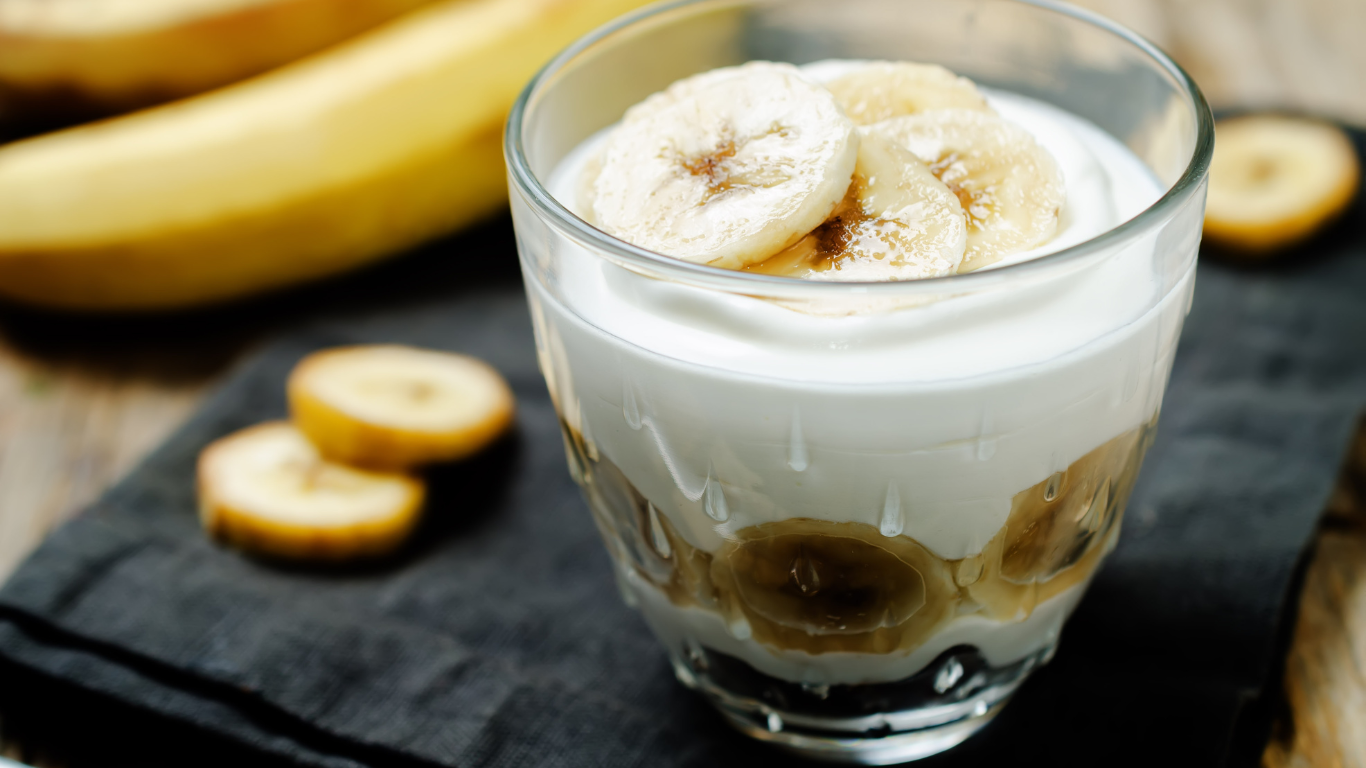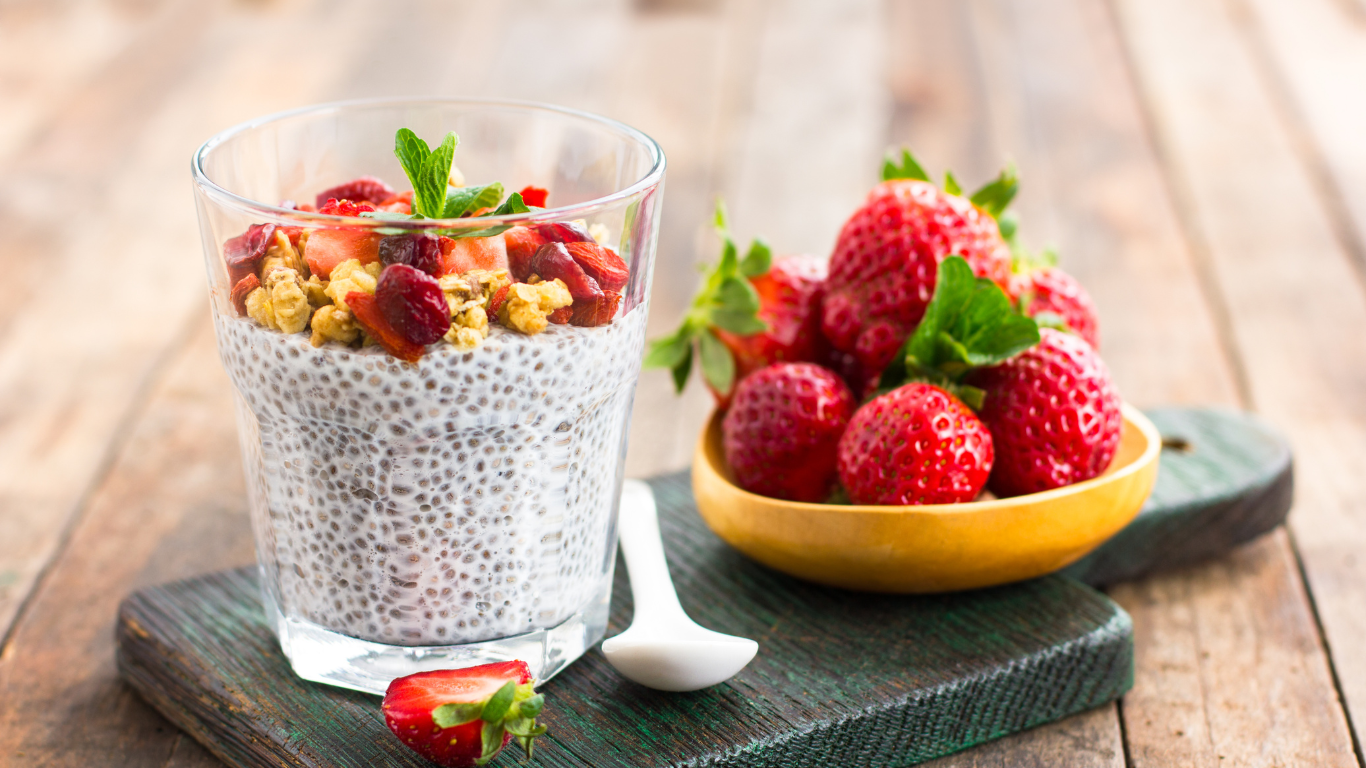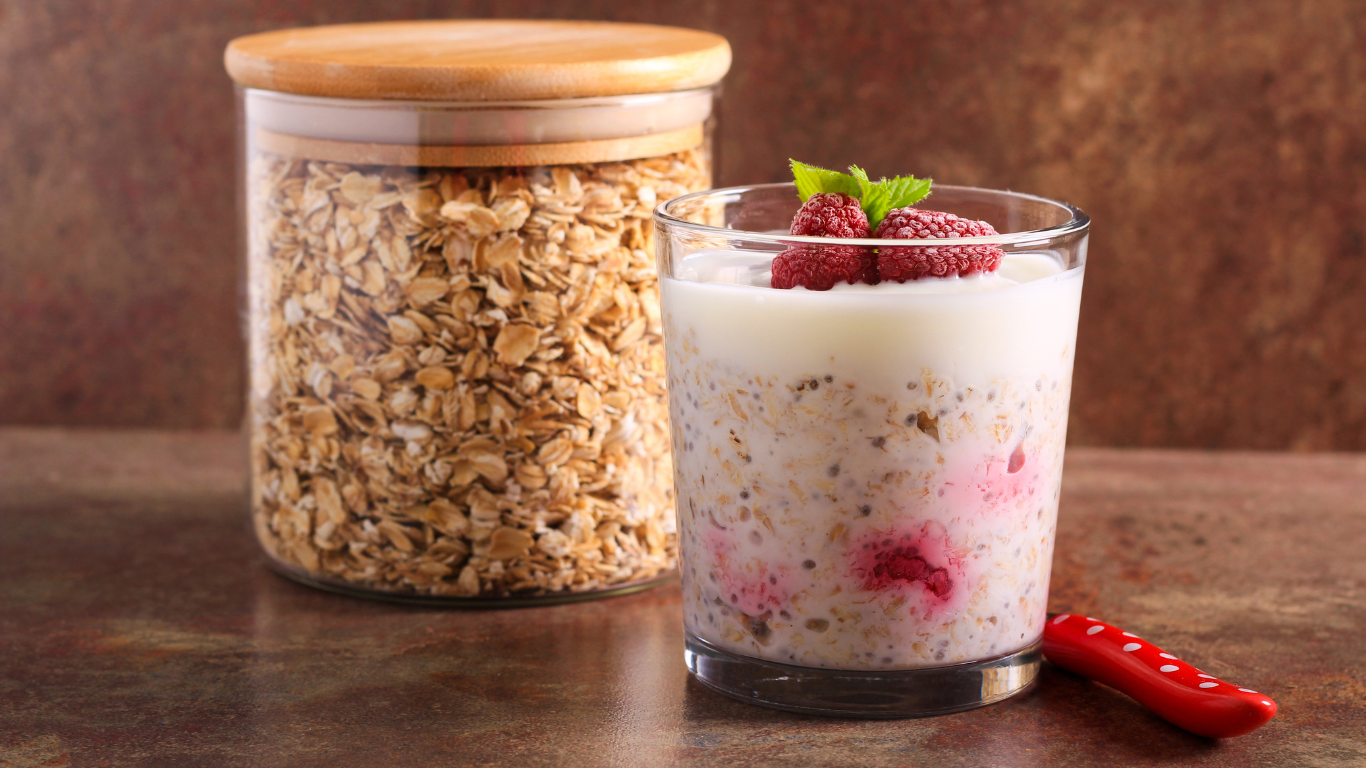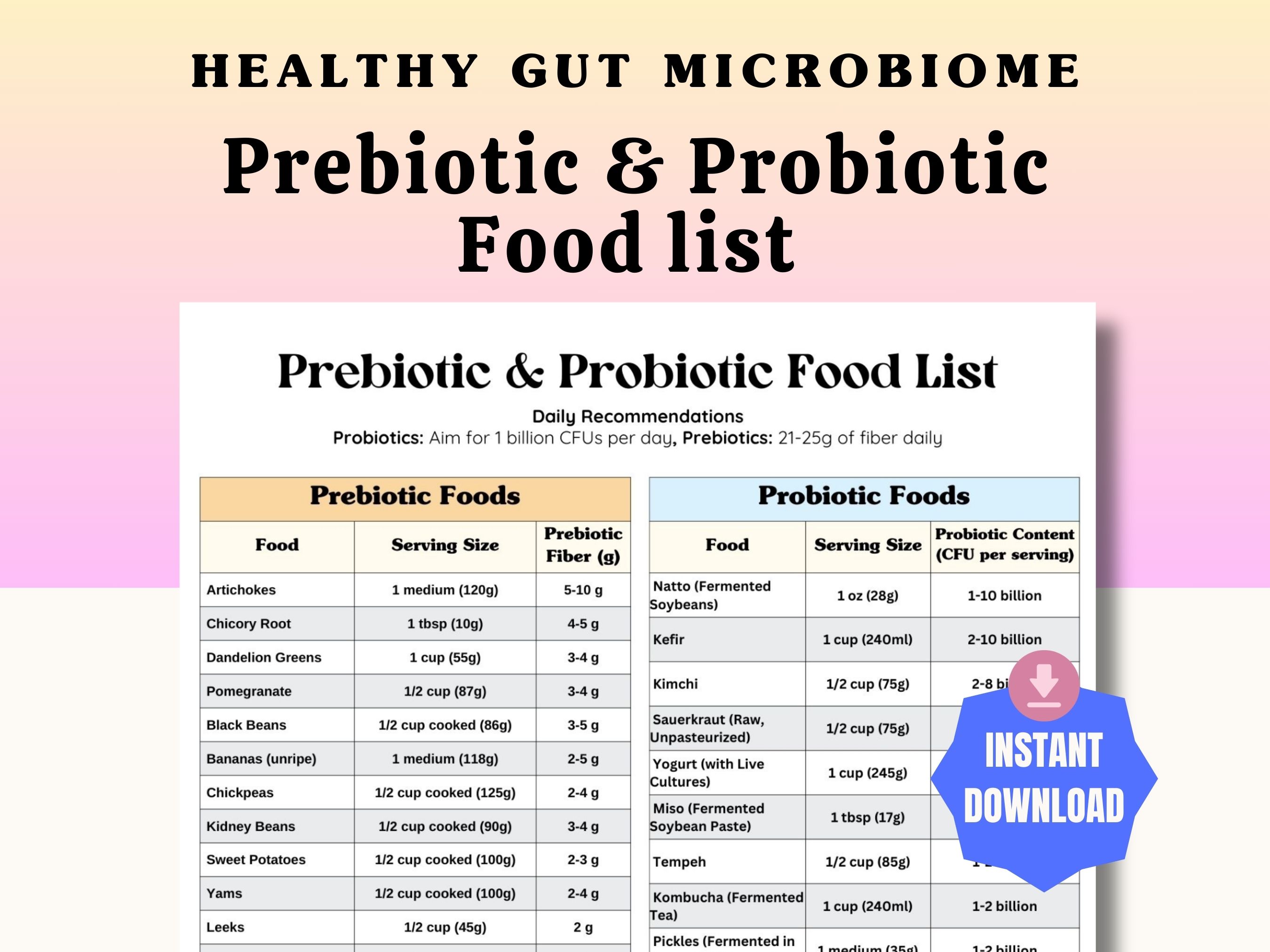
Why Gut Health Matters for Women
Ladies, let’s talk about gut health. It’s not just about digestion—it’s about overall health, from balancing hormones to supporting your immune system and even keeping your mood in check. Think of your gut as your body’s control center. When it’s in good shape, you feel energized, think clearer, and even maintain a healthy weight more easily. But when it’s off? You might experience bloating, mood swings, and even hormonal imbalances.
What Are Prebiotics and Probiotics?
Alright, let’s break it down in the simplest way possible.
-
Prebiotic foods are like fuel for your gut’s good bacteria. They contain non-digestible fibers that act as food for the beneficial gut bacteria in your digestive system. Think of prebiotics as the fertilizer that helps the good stuff grow.
-
Probiotic foods contain live bacteria that replenish and maintain a balanced gut microbiome. These are the friendly bacteria that help with digestion, immune function, and even hormone health.
Imagine your gut is like a garden. Prebiotics are the nutrient-rich soil that feeds the plants (good bacteria), while probiotics are the actual plants that keep everything balanced and thriving. Without prebiotics, probiotics won’t have enough to eat, and without probiotics, your gut won’t have enough of the right bacteria to keep your digestive system running smoothly.
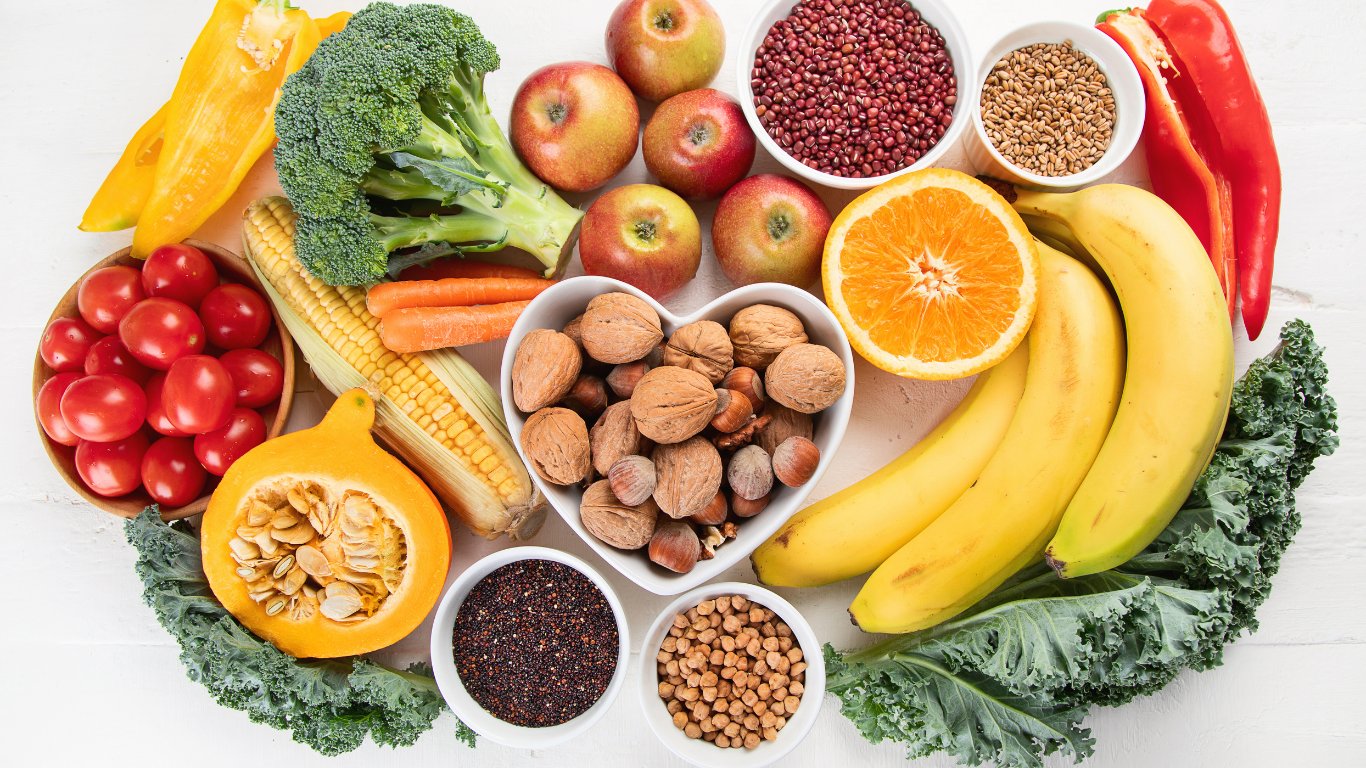
How Are Prebiotics Different from Fiber?
Prebiotics and fiber are related but not the same!
-
Fiber is a broad category of plant-based carbohydrates that the body can’t fully digest. It helps with digestion, supports heart health, and keeps you full.
-
Prebiotics are a specific type of fiber that feeds the beneficial gut bacteria (probiotics) in your digestive system. All prebiotics are fiber, but not all fiber is prebiotic!
For example:
-
Prebiotic fiber: Found in chicory root, garlic, onions, and bananas, it specifically nourishes healthy gut bacteria.
-
Other fiber: Found in whole grains and leafy greens, it adds bulk to stool and helps digestion but doesn’t necessarily feed probiotics.
Both are essential for a healthy gut microbiome, hormone balance, and overall health, so getting a mix of different high-fiber foods is key!
How Much Do You Need?
For women over 35, the key is consistency. A healthy gut microbiome thrives on regular intake of both prebiotics and probiotics.
Prebiotic fiber:
-
Aim for at least 25-30g of fiber per day from whole foods like:
-
Chicory root
-
Garlic
-
Onions
-
Oats
-
Asparagus
-
-
These high-fiber foods support beneficial gut bacteria and aid in:
-
Digestive Health
-
Immune function
-
Hormone balance
-
-
If you’re not used to consuming a lot of fiber:
-
Start slow to avoid bloating or abdominal pain
-
Drink plenty of water to help fiber work effectively
-
Probiotics:
-
Try to include one to two servings of probiotic-rich foods daily, such as:
-
Greek yogurt
-
Kefir
-
Sauerkraut
-
Kimchi
-
Miso
-
-
Different probiotic strains offer unique benefits, supporting:
-
Gut function
-
Estrogen metabolism
-
Overall health
-
-
If taking a probiotic supplement:
-
Look for one with at least 10 billion CFUs
-
Choose a mix of multiple strains, such as Lactobacillus and Bifidobacterium
-
Women dealing with hormone imbalances, bloating, or stress-related gut issues may benefit from targeted probiotic supplements
-
For best results:
-
Pair prebiotics with probiotics—this dynamic duo works together to:
-
Support a healthy digestive system
-
Stabilize blood sugar levels
-
Reduce inflammation
-
Making these foods a daily habit can play a significant role in your overall health and well-being.
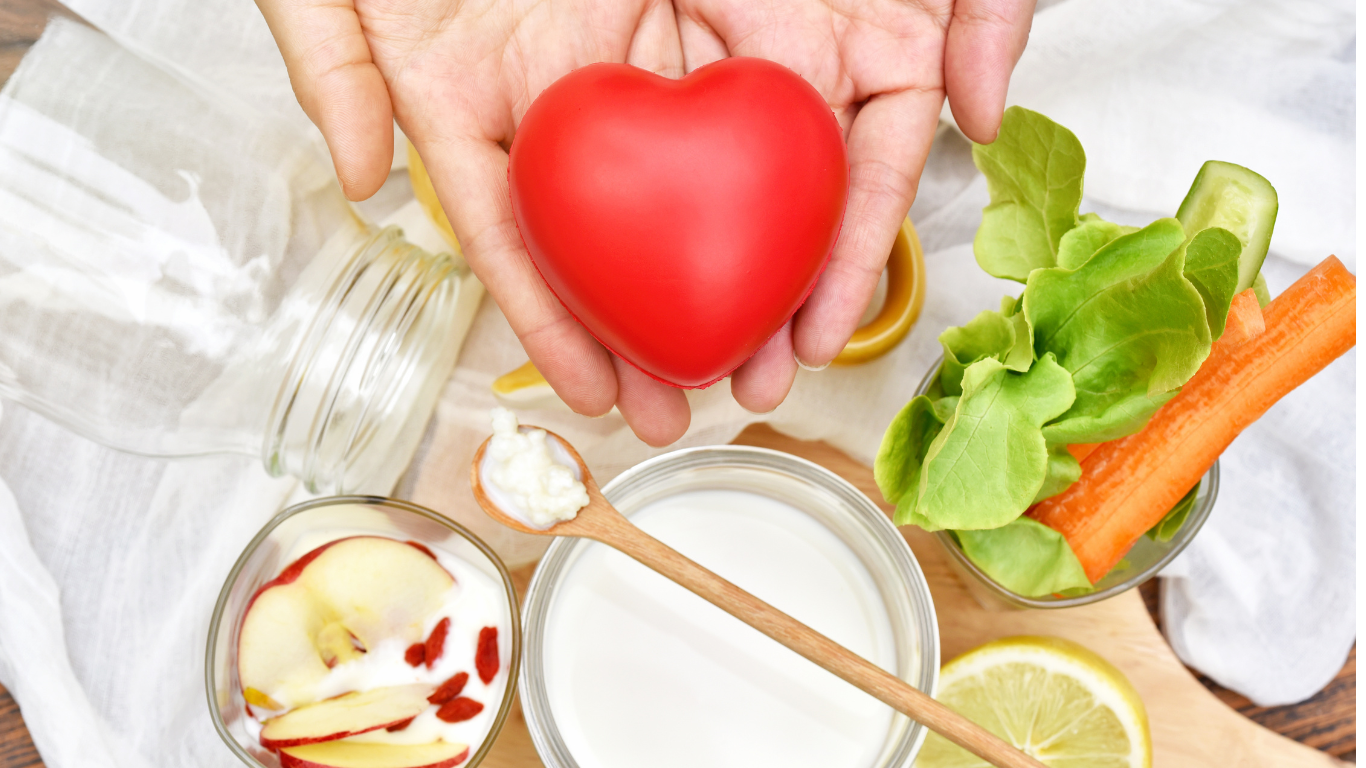
Why Women Over 35 Need a Gut-Friendly Diet
By the time you hit your mid-30s, your body starts changing in ways you never really expected—hormones fluctuate, digestion slows down, and suddenly, bloating or stubborn weight gain becomes more common. But here’s the good news: taking care of your gut can help balance it all.
A healthy gut microbiome isn’t just about digestion—it’s deeply connected to hormone health, metabolism, immunity, and even your mood.
Why Your Gut Health Matters After 35
🌸 Hormonal Balance – Your gut helps regulate estrogen metabolism, which can ease PMS (Premenstrual Syndrome) symptoms, mood swings, and perimenopausal changes. A strong gut also supports better absorption of key nutrients like magnesium and B vitamins—both essential for hormonal health.
⚖️ Weight Control – A healthy gut microbiome supports insulin sensitivity, reduces inflammation, and helps regulate appetite, making weight management easier.
💨 Better Digestion – If bloating, irregularity, or IBS-like symptoms (Irritable bowel syndrome) have become a part of your daily routine, improving your gut health can reduce discomfort and support smoother digestion.
🛡️ Stronger Immunity – Your gut is home to nearly 70% of your immune system. Keeping it balanced helps fight off illnesses and reduces inflammation that contributes to chronic health issues.
🧠 Mental Well-Being – Your gut and brain are constantly communicating. A healthy gut can help regulate stress, improve your mood, and even support better sleep by balancing cortisol levels.
"If you're over 35, your gut health directly impacts how you feel every day."
Prioritizing gut-friendly foods—a mix of prebiotics and probiotics—can make a noticeable difference in hormonal balance, digestion, weight, and energy levels.
It’s not just about eating better—it’s about feeling better, too. 💛
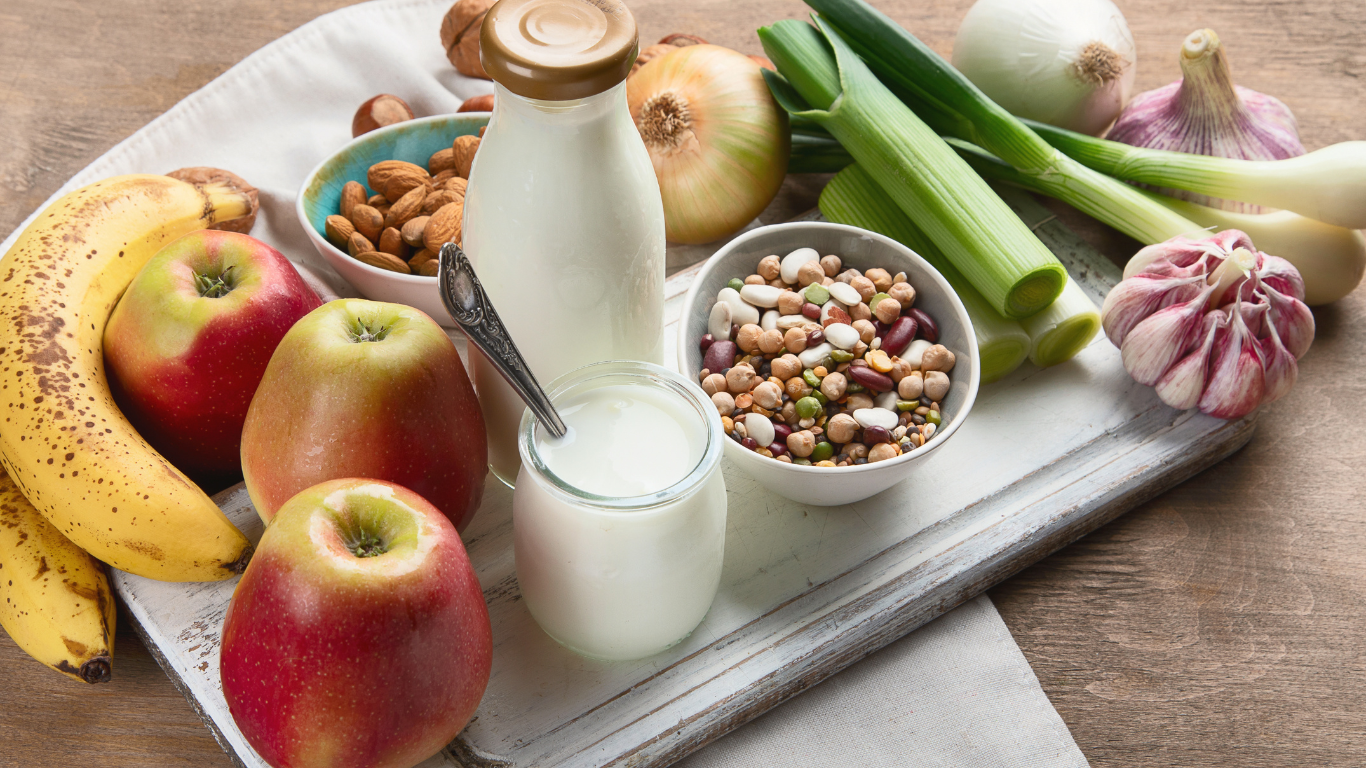
The Best Prebiotic and Probiotic Foods for Women Over 35
Balancing prebiotics and probiotics in your diet is one of the best things you can do for hormone health, digestion, and overall well-being. Here’s a look at some of the best sources and how much they contain.
Top Prebiotic Foods (Fiber for Gut Bacteria)
🥬 Chicory Root – One of the richest sources, with up to 65% prebiotic fiber per serving. Helps feed gut bacteria and support digestion.
🧄 Garlic & Onions – Provide 5-17% prebiotic fiber per serving. Support gut function and immune health while adding flavor to meals.
🍌 Bananas – A gentle prebiotic source with 2-3 grams of fiber per medium banana. Great for digestion and hormone balance.
🌾 Oats & Barley – Contain 2-4 grams of prebiotic fiber per serving. Help fuel beneficial gut bacteria and improve blood sugar balance.
🥦 Asparagus & Leeks – Deliver 2-5 grams of prebiotic fiber per cup. Excellent for gut health and nutrient absorption.
Top Probiotic Foods (Live Bacteria for Gut Health)
🥄 Greek Yogurt – Contains 5-10 billion CFUs per serving (varies by brand). Supports gut function, bone health, and digestion.
🥛 Kefir – Offers 10-30 billion CFUs per cup. Packed with diverse probiotic strains for stronger gut health.
🥬 Sauerkraut & Kimchi – Provide 1-10 billion CFUs per serving, depending on fermentation. Loaded with friendly bacteria for digestion and immunity.
🍱 Miso & Tempeh – Contain millions to billions of CFUs per serving. Excellent for gut health and protein intake.
🥒 Pickles (Fermented in Brine, Not Vinegar) – Offer up to 1 billion CFUs per serving. Great for adding probiotics to your diet naturally.
Prebiotics + Probiotics = A Powerful Gut Duo
Think of prebiotics as the fuel and probiotics as the workers in your gut. When you consume both together, you’re creating the ideal environment for a thriving microbiome—which is crucial for hormone balance, metabolism, and digestion.
🦠 Why This Combo Matters for Women Over 35
As we age, shifts in hormones (like estrogen and progesterone) can impact gut health, leading to bloating, weight fluctuations, and even mood swings. Pairing prebiotics and probiotics helps:
✅ Support estrogen metabolism – A well-fed gut microbiome helps break down and regulate estrogen levels, reducing symptoms like PMS, bloating, and fatigue.
✅ Improve insulin sensitivity – A balanced gut supports blood sugar regulation, reducing the risk of insulin resistance and weight gain.
✅ Enhance digestion & reduce bloating – Probiotics introduce good bacteria, while prebiotics feed them, helping to ease constipation, gas, and IBS symptoms.
How to Combine Them Daily
The best way to support your gut health is by combining prebiotic and probiotic foods in your meals. Prebiotics are fibers that feed the good bacteria in your gut, while probiotics are live bacteria that help maintain a balanced gut microbiome.
Here are a few simple, gut-friendly recipes that bring both together:
Want to make this gut-friendly habit effortless? Try these prebiotic + probiotic food pairings, perfect for your daily snacks!:
1. Yogurt & Banana Parfait
A quick and satisfying snack packed with gut-friendly nutrients.
✅ Probiotics: Greek yogurt (5-10 billion CFUs)
✅ Prebiotics: Banana (2-3g of fiber)
✅ Bonus: Chia seeds (5g fiber), Oats (2-3g fiber)
Ingredients:
- ½ cup plain Greek yogurt (probiotic)
- 1 banana, sliced (prebiotic)
- 1-2 tbsp granola (optional)
- 1 tsp chia seeds (optional, prebiotic)
- Honey or maple syrup (optional)
Instructions:
- Layer Greek yogurt and banana slices in a bowl or cup.
- Sprinkle with granola, chia seeds, and a drizzle of honey for added crunch and flavor.
- Enjoy this easy, gut-friendly breakfast or snack!
2. Chia Pudding with Yogurt & Berries
This creamy, fiber-rich pudding is perfect for breakfast or dessert.
✅ Probiotics: Greek yogurt (10-100 billion CFUs)
✅ Prebiotics: Chia seeds (5g fiber), Berries (2-4g fiber per 100g)
Ingredients:
- 2 tbsp chia seeds
- ½ cup unsweetened almond milk
- 1 tbsp plain Greek yogurt (probiotic)
- A handful of mixed berries (prebiotic)
- Sweetener of choice (optional)
Instructions:
- Stir together chia seeds, almond milk, and Greek yogurt in a jar.
- Let sit for 10 minutes, then stir again to prevent clumping.
- Refrigerate for at least 2 hours or overnight.
- Top with berries before serving.
3. Kefir & Berry Overnight Oats
A creamy, nutrient-packed breakfast that’s ready when you wake up.
✅ Probiotics: Kefir (10-30 billion CFUs)
✅ Prebiotics: Oats (4g fiber), Chia seeds (5g fiber)
Ingredients:
- ½ cup rolled oats
- ½ cup kefir (probiotic)
- 1 tbsp chia seeds (prebiotic)
- ¼ cup mixed berries (prebiotic)
Instructions:
- Combine oats, kefir, and chia seeds in a jar or bowl.
- Stir well, cover, and refrigerate overnight.
- In the morning, top with mixed berries and enjoy!
Daily Recommendations at a Glance:
💊 Probiotics: Aim for at least 1 billion CFUs per day—these snacks provide much more!
🌿 Prebiotics: Women should get 21-25g of fiber daily—each of these recipes contributes 5-9g per serving to help meet that goal.
Making gut-friendly choices every day doesn’t have to be complicated—just a few simple swaps can go a long way in supporting digestion, hormone balance, and overall health!
Should You Take Supplements?
If you’re not getting enough from food, a women’s probiotic or prebiotic supplement can be helpful. Look for one that supports gut health, immune function, and hormone balance. Always check with your healthcare provider, especially if you have medical conditions.
Possible Side Effects: Go Slow & Listen to Your Gut
Jumping into too much fiber or probiotics too quickly? Your gut might protest with bloating, gas, or abdominal discomfort. This is totally normal—your digestive system needs time to adjust to the influx of good bacteria and fiber.
🛑 Common Reactions & How to Manage Them:
💨 Bloating & Gas → Start with small amounts and gradually increase intake.
🤕 Abdominal Discomfort → Drink plenty of water to help fiber move smoothly.
🚽 Changes in Digestion → Your gut is rebalancing—give it a few days!
If symptoms persist, try adjusting the type of fiber or probiotic strain you’re consuming. The key is consistency and balance—your gut will thank you.
Final Thoughts: Nourish Your Gut, Support Your Health
Taking care of your gut is one of the best things you can do for your hormonal balance, digestion, and overall well-being. A diet rich in prebiotic and probiotic foods helps regulate estrogen, improve metabolism, and keep bloating at bay—so you can feel your best, inside and out.
The key? Consistency. Small, daily choices add up. Start slow, listen to your body, and enjoy the benefits of a happy, healthy gut! 💛
Want to Make Gut Health Simple? 💛
Grab our easy-to-follow digital food list with the best prebiotic and probiotic foods to keep your gut happy, balance hormones, and feel amazing every day!
📥 [Click here to download your guide!]


